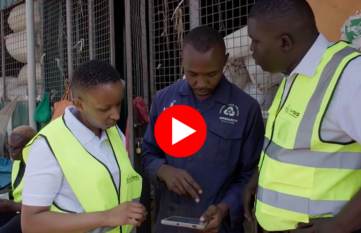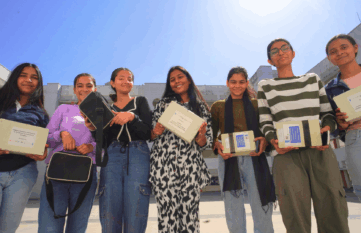Tide turns with tech: Women building climate resilience with AI

Rising sea levels, endangered coral reefs, fish shortages—yet at the heart of it all: women in remote Indonesian villages leading the way equipped with digital skills and local knowledge. From forecasting storms to promoting ecotourism, they are building climate resilience for their communities and their future.
On the remote islands of the Indonesian archipelago, women are taking the lead in the fight against climate change—with digital skills and artificial intelligence (AI). In Pulo Aceh, one of the regions hardest hit by the 2004 tsunami, coastal communities are now facing new challenges: rising sea levels, unpredictable weather, and dwindling fish stocks. But this time, the response is proactive—and powered by technology. Supported by the FAIR Forward – Artificial Intelligence for All initiative by GIZ, implemented by Common Room Networks Foundation, local women in these remote villages are building digital confidence and becoming drivers of climate resilience in their communities.

Empowering participation through digital skills
Pulo Aceh is part of a pilot project aimed at building climate resilience in vulnerable coastal regions through AI and rural connectivity. In local community centres, women gather to learn how AI works, how to interpret climate data, and how to use digital tools to improve daily life and livelihoods. The focus is on empowering women, not just as participants, but as drivers of change.

© GIZ Indonesia/FAIR Forward
We want AI to grow with the community—not be imposed from the outside.
Karlina Octaviany, AI specialist, FAIR Forward
The training sessions are part of FAIR Forward’s mission to make AI accessible and inclusive. In Pulo Aceh, the initiative prioritises low-resource, energy-efficient AI tools that work even in areas with limited internet access. The women learn to use these tools to track weather patterns, predict safe fishing times, and monitor the health of nearby coral reefs—all critical as climate change continues to reshape their environment.
Where local wisdom meets AI
But FAIR Forward’s work doesn’t stop at skills training. It enables women to take an active role in co-creating local solutions to pressing climate challenges, connecting their traditional knowledge with modern technology.

Local ownership is essential. That’s why local women and men alike help decide where to install Solitude sensor buoys, which collect environmental data. Their knowledge, handed down over generations, is key to identifying safe zones and protecting waters that are considered sacred.
Digital confidence and economic potential
Educator Ulva Zahra is one of the women participating in the digital skills training programme. For Ulva, AI has opened up new possibilities—not just as a teaching aid, but as a way to amplify her voice and share Pulo Aceh’s story with the world.

© GIZ Indonesia/FAIR Forward
Before the training, I didn’t know AI could help in education or daily communication. Now, I use it to create learning materials, better understand children’s behaviour, and even promote our island on social media.
Ulva Zahra, Educator
Beyond education, digital training also unlocks economic opportunity. Jar Suwardi, a young entrepreneur and part-time fisherman, works with women in his village to develop sustainable business models and tourism ideas rooted in local identity. “AI can improve our livelihoods—but only if everyone, especially women, is involved,” he says.

A model for inclusive AI
FAIR Forward’s work in Pulo Aceh is part of a wider effort in seven countries across Asia and Africa to promote open, fair, and inclusive AI. In Indonesia, it’s the first time AI has been embedded into the ‚blue economy‘. This term refers to the sustainable use of marine resources for economic growth, improved livelihoods, and ocean ecosystem health. In Pulo Aceh, women are at the heart of it.

© GIZ Indonesia/FAIR Forward
This project shows how AI can promote sustainable development when it’s inclusive. Women’s participation ensures that solutions are not only smart—but also just and sustainable.
Ruth Schmidt, AI expert for climate resilience, FAIR Forward
The stories of Pulo Aceh reflect the growing digital confidence among women in rural Indonesia, transforming also their roles in society—from caregivers to educators, innovators, and climate leaders. And they are a powerful reminder: with the right tools and support to navigate a changing climate, women in even remote areas can drive digital transformation.


